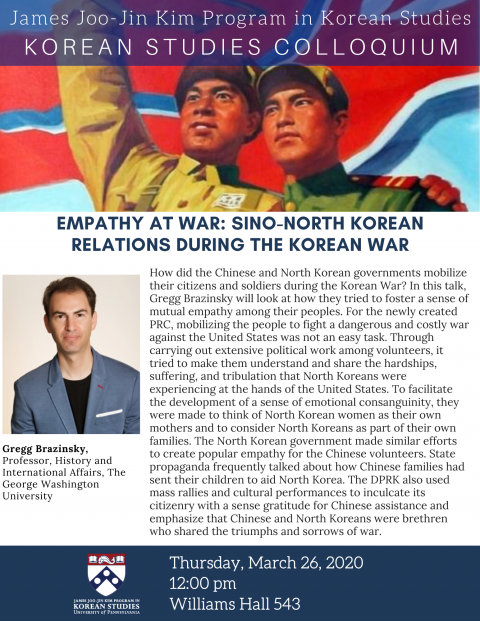
Korean Studies Colloquium
Williams Hall 543 (Cherpack Lounge)
***THIS EVENT HAS BEEN CANCELED DUE TO THE COVID-19 SITUATION***
How did the Chinese and North Korean governments mobilize their citizens and soldiers during the Korean War? In this talk, Gregg Brazinsky will look at how they tried to foster a sense of mutual empathy among their peoples. For the newly created PRC, mobilizing the people to fight a dangerous and costly war against the United States was not an easy task. Through carrying out extensive political work among volunteers, it tried to make them understand and share the hardships, suffering, and tribulation that North Koreans were experiencing at the hands of the United States. To facilitate the development of a sense of emotional consanguinity, they were made to think of North Korean women as their own mothers and to consider North Koreans as part of their own families. The North Korean government made similar efforts to create popular empathy for the Chinese volunteers. State propaganda frequently talked about how Chinese families had sent their children to aid North Korea. The DPRK also used mass rallies and cultural performances to inculcate its citizenry with a sense gratitude for Chinese assistance and emphasize that Chinese and North Koreans were brethren who shared the triumphs and sorrows of war.
 James Joo-Jin Kim Center for Korean Studies
James Joo-Jin Kim Center for Korean Studies